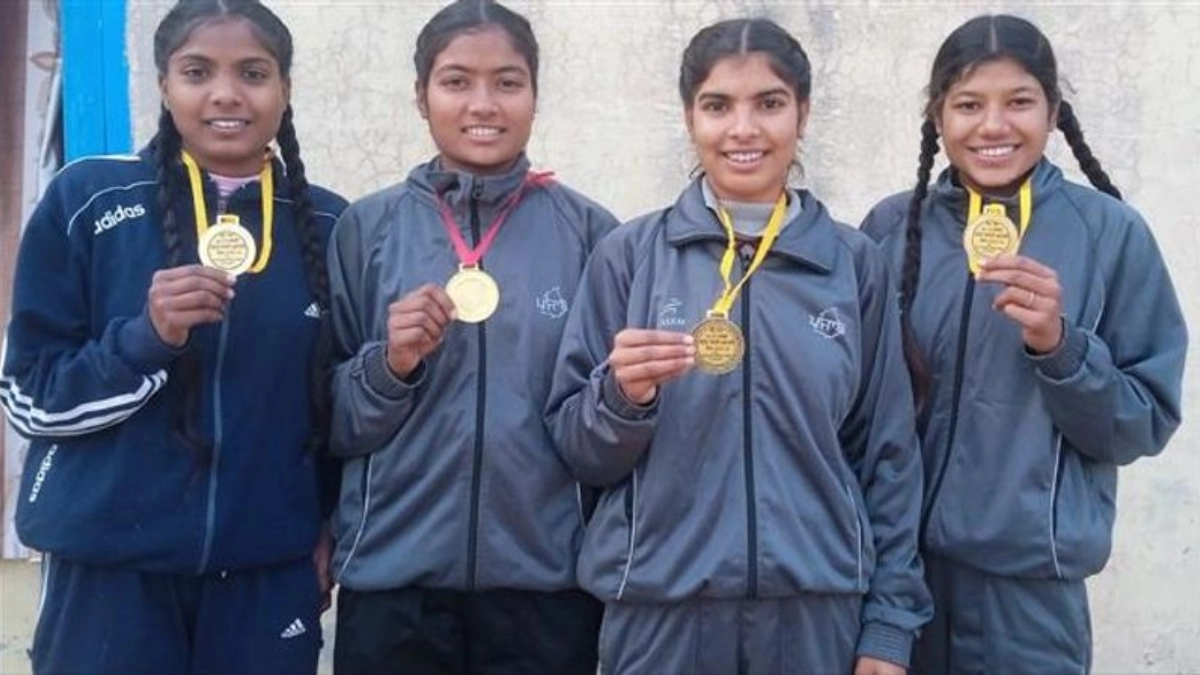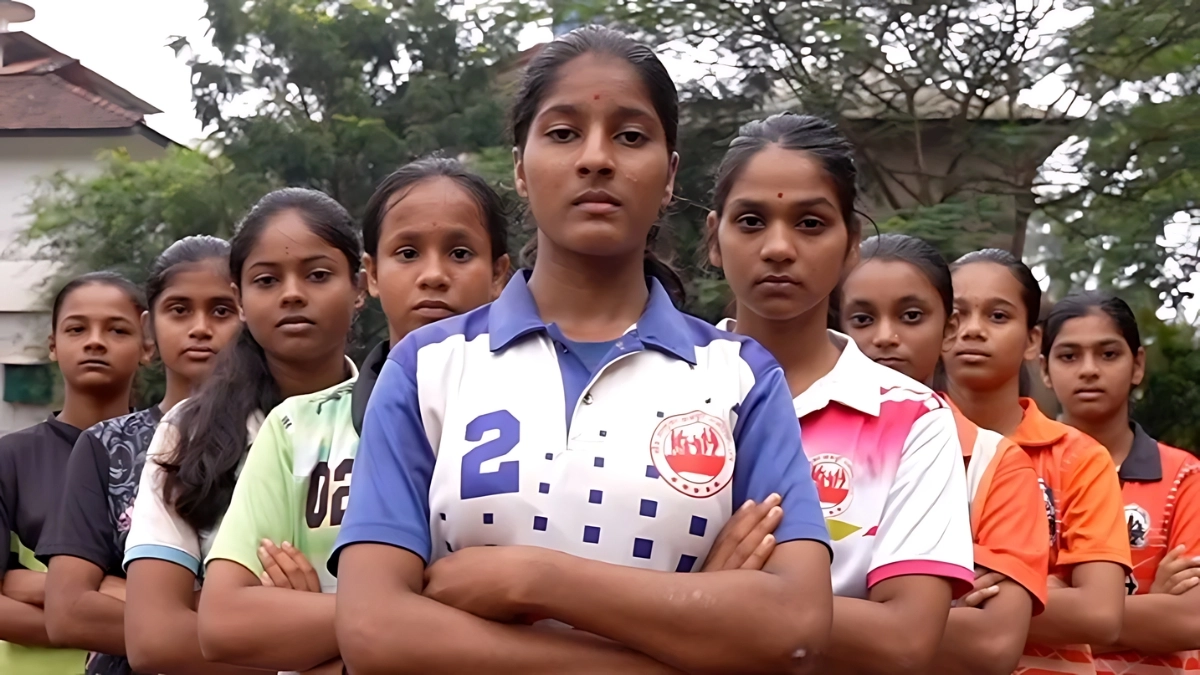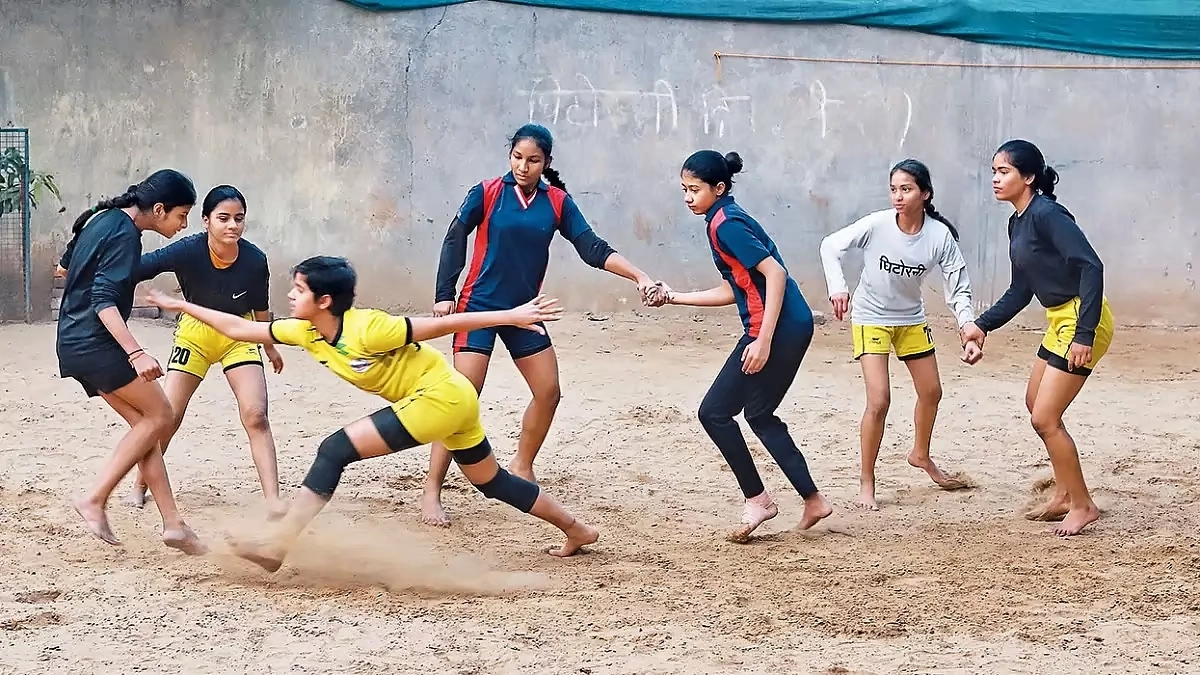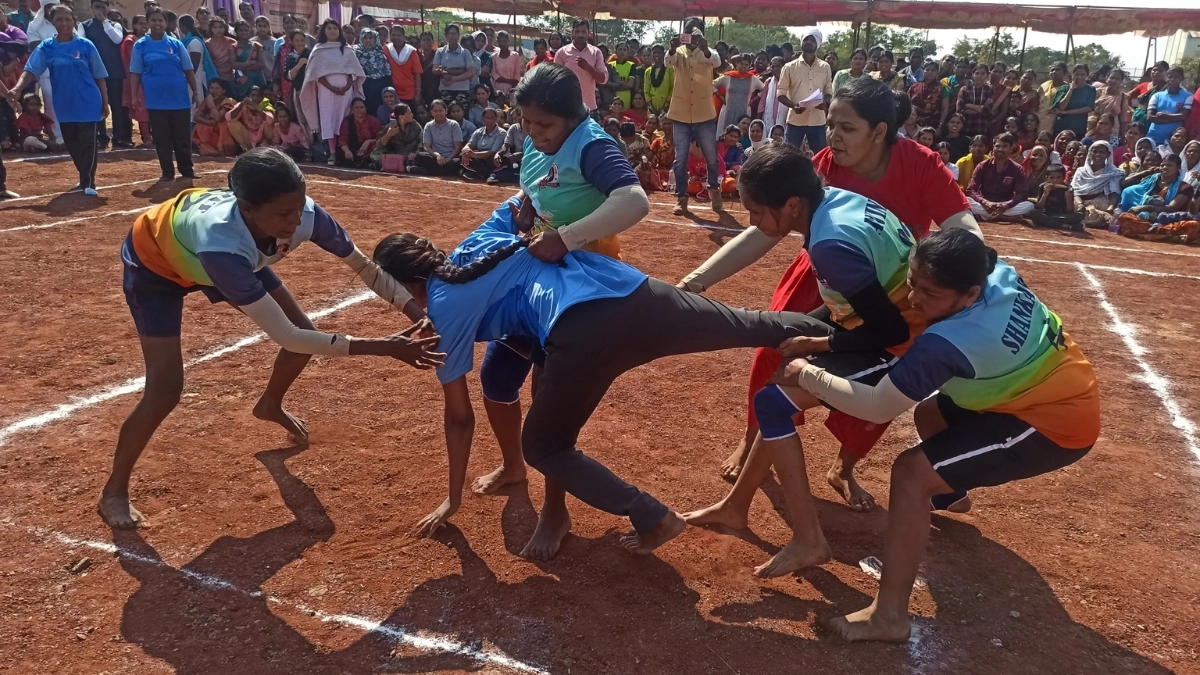How a Small Kabaddi Club is Transforming Girls’ Lives in Rural India

A Game That Changes Lives
Meena’s eyes move quickly from left to right and back again. She is searching for the perfect moment to make her move.
She is playing Kabaddi, a traditional Indian contact sport now played in over 50 countries worldwide.
Kabaddi is a game between two teams, each with seven players. One player runs into the opponent’s half to tag them and returns to their side without being tackled.
But for 14-year-old Meena, this is more than just a game. It is an escape from a life filled with restrictions. It gives her opportunities she never thought possible.
“It feels different when I play,” she says shyly, struggling to explain. “In that moment, I am not the same Meena who does housework all day. I am free… I feel stronger than other girls who don’t play.”
Breaking Barriers in a Small Village
Meena lives near Kudoshi, a small tribal village about 230 kilometers from Mumbai. In this area, girls’ lives usually revolve around household chores, marriage, and children.
The Birth of a Dream

But 15 years ago, a group of teachers at the local school decided to change things. They wanted to give girls more chances in life.
Daji Rajguru was one of those teachers. He has short dark hair and a moustache. He wears a white sports shirt with a blue collar. Daji founded the club with his colleagues to help girls dream bigger.
“I have a daughter. I want her to live her best life, achieve something great,” he says. “Why can’t girls play Kabaddi and build careers out of it?”
So Daji and his friends started teaching Kabaddi to local girls. They pooled their savings—5,000 rupees ($60)—and asked the school to let them use its grounds. This became the region’s first all-girls Kabaddi club.
Overcoming Resistance
At first, only two girls joined. Parents were hesitant. They worried about their daughters spending too much time away from home. Some feared it might harm their marriage prospects. Traditional families did not approve of girls going out late or playing sports.
Daji and his team went door to door to convince parents. They promised to supervise the girls carefully and keep them safe during training sessions before and after school. At first, they picked the girls up and dropped them off at home. But as more girls joined, they could no longer do this.
Today, there are about 30 girls in the club. Over the years, nearly 300 girls have trained with them, including Daji’s own daughter. Some start as young as seven years old.
The Impact on Girls’ Lives
Training and Sacrifice

Like everyone else in the club, Meena trains for two hours before school and two hours after classes end. She leaves home at dawn and doesn’t return until nightfall.
“I go alone in the dark. I used to be scared someone might hurt me. My family wasn’t supportive then, and they still aren’t happy with my choice to become a sportswoman,” she says.
But Meena keeps going. She is inspired by former club members who have succeeded. Siddhi Chalke and Samreen Burandkar were among the first girls to train at the club. Now, at 25, they are professional Kabaddi players and financially independent.
Success Stories
At first, their families saw Kabaddi as a phase. When the women decided to make it their career, their parents were upset. There is still pressure for them to marry, but their families are also proud of their success.
Samreen stands smiling with medals around her neck and trophies behind her. She wears a light blue sports shirt.
“No one in my family earns as much as I do,” she says. “I live in a big city now and make my own choices. Coming from my community, it’s hard for girls to chase their dreams. I am here because of Kabaddi.”
Siddhi plays on the same team as Samreen. Their friendship began through Kabaddi. They have traveled across India for competitions, winning medals and championships.
“I could only do this because of Kabaddi. Otherwise, I would have been married and stuck washing dishes at my husband’s house,” says Siddhi. Both laugh, relieved they avoided that fate.
Beyond the Game
Opportunities Through Sports

In India, excelling in sports can lead to government jobs. States reserve positions for high-achieving athletes, ensuring income even after their sporting careers end.
Many rural girls take up sports hoping to gain financial independence through these jobs. It also brings respect and a sense of identity.
“When we started the club, no one cared about these girls. They were treated as second-class citizens at home and in society,” says Vilas Bendre, a young coach at the club.
“But when rural girls succeed in sports, their lives change completely. The way they talk, carry themselves, and live—all of it improves.”
Community Acceptance
The community has become more accepting too. When people see girls exercising, they no longer frown.
The club is funded by the coaches, cash prizes from competitions, and occasional donations. Most of the girls come from poor families, so they don’t pay any fees.
During summers, the club organizes residential sports camps at the school. They provide food like eggs, bananas, and milk. They even pay for treatment if a player gets injured.
Conclusion
Over time, parents’ fears have faded. But critics still question the coaches’ motives. “People ask indirectly, ‘Why don’t you teach boys?'” says Daji. But he explains that boys already have opportunities, while girls face gaps.
“We are not just their coaches,” adds Vilas. “Sometimes we are their parents, guiding them, disciplining them, helping them choose the right path.”
And Meena knows what this opportunity means. “I want to be the best raider and captain of India’s Kabaddi team,” she says, daring to dream of medals, championships, and leaving her ordinary village life behind.
Through Kabaddi, these girls are breaking barriers, gaining confidence, and rewriting their futures. What started as a small initiative in a remote village has grown into a movement that empowers hundreds of young women.
This inspiring story of Meena and her Kabaddi journey was covered on the ground by the BBC, highlighting how a simple game is transforming the lives of rural girls in India.
ALSO READ: Pro Kabaddi League: Bengaluru Bulls End Partnership With Head Coach Randhir Singh Sehrawat
